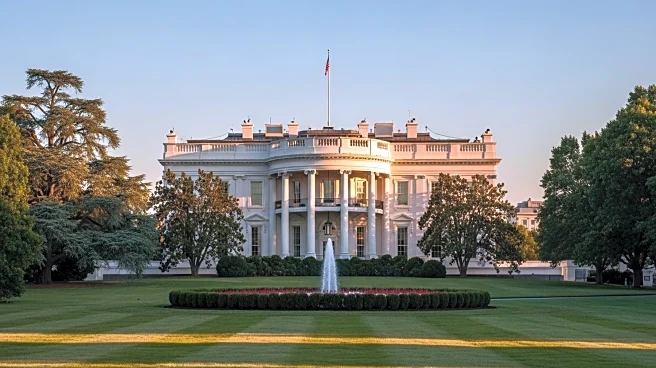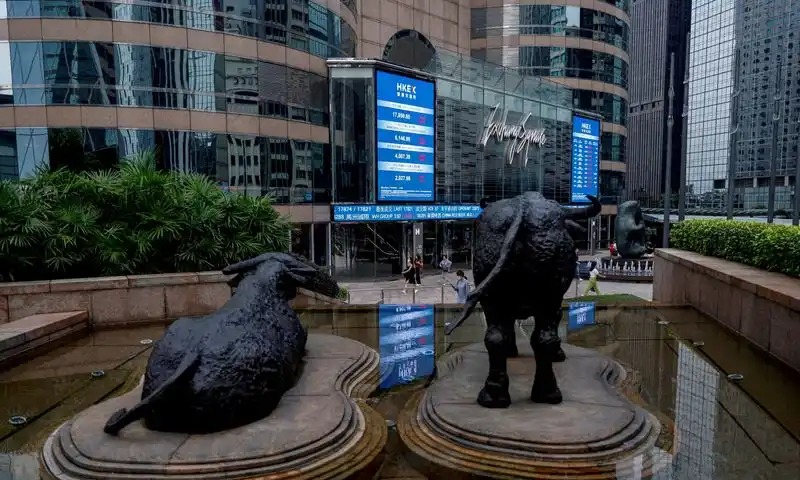What's Happening?
President Trump is hosting Argentine President Javier Milei following the United States' agreement to provide a $20 billion bailout to support Argentina's struggling economy. This meeting underscores the diplomatic relations between the two nations as
they navigate economic challenges. The bailout aims to stabilize Argentina's financial situation, which has been marked by inflation and debt issues. The U.S. intervention reflects its interest in maintaining economic stability in the region, potentially influencing future trade and diplomatic engagements.
Why It's Important?
The $20 billion bailout is significant as it highlights the U.S.'s role in international economic stabilization efforts. For Argentina, this financial support is crucial in addressing its economic crisis, potentially averting further economic decline. The U.S. involvement may strengthen bilateral relations, offering opportunities for increased trade and cooperation. However, it also raises questions about the long-term implications for Argentina's economic sovereignty and the conditions attached to such financial aid. Stakeholders in both countries will be closely monitoring the outcomes of this agreement.
What's Next?
The meeting between President Trump and President Milei may lead to further discussions on economic collaboration and trade agreements. Observers will be watching for any announcements regarding additional support or strategic partnerships. The Argentine government will likely focus on implementing measures to effectively utilize the bailout funds, aiming to stabilize its economy and restore investor confidence. The U.S. may continue to play a role in advising or overseeing the economic recovery process.
Beyond the Headlines
This development could influence regional economic policies, with other Latin American countries observing the U.S.-Argentina relationship as a potential model for economic assistance. The ethical considerations of such bailouts, including the impact on national sovereignty and economic independence, may become a topic of debate among policymakers and economists.
















